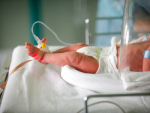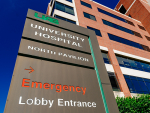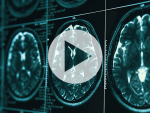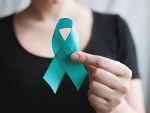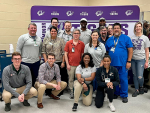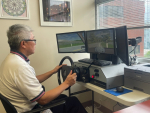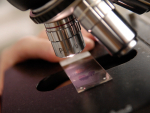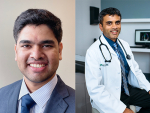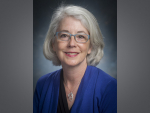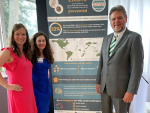Displaying items by tag: school of medicine
Rising junior and UAB Honors College student Wajiha Mekki was recently selected for a prestigious internship with Johnson & Johnson.
Tagged under
Published results from two UAB studies found the duration of intermittent hypoxemia events and the presence and persistence of a patent ductus arteriosus after birth are two novel risk factors of BPD-PH in preterm infants.
The future has much potential as the REACH Up and Out program hopes to continue to make an impact on the lives of Black women in the Deep South.
Tagged under
Arushi Kotru, a spring 2023 UAB graduate, will have the opportunity to spend the summer in India learning Hindi as a recipient of the prestigious Critical Language Scholarship.
Tagged under
Despite fewer drivers on the roads and fewer injuries per accident, fatal crashes in Alabama increased by 26 percent over the three years from 2020 through 2022.
Tagged under
Cure HHT has named the HHT Clinic at UAB Hospital a Center of Excellence. Only hospitals equipped with the proper personnel, expertise, commitment and resources to provide comprehensive evaluation, treatment and education to individuals with HHT and their families receive this designation.
Tagged under
To address the critical need for more emergency medical services in Birmingham and Alabama, UAB Hospital — with support from the State of Alabama — is creating 59 new exam rooms and more than 66,000 square feet of clinical space to meet service demand.
Tagged under
UAB was involved in clinical trials that led to an accelerated approval of the drug lecanemab, commercially known as Leqembi, in January 2023. A UAB Alzheimer’s expert discusses the therapy and what full approval means for the AD field.
Over $1 million has been raised for ovarian cancer research through the Drive Out Ovarian Cancer car tag.
Tagged under
These nanowires, which can transport electrons to help a microbe make energy, were first described in a Geobacter bacteria; but now nanowires appear to be widespread in both bacteria and archaea prokaryotes.
Earlier this spring, UAB providers, assisted by staff volunteers, performed various exams for the student-athletes, including an eye exam by UAB Eye Care, musculoskeletal exam, evaluation of cardiac and pulmonary function, and reading of standard vitals.
UAB researchers aim to look at the value of using a driving simulator to predict on-road driving performance after TBI.
This funding will be used to research multiple health conditions, including alcohol-related liver disease, Alzheimer’s disease, breast cancer, heart failure, inflammatory bowel disease and Zhu-Tokita-Takenouchi-Kim syndrome.
Tagged under
Six-year-old Waylon Marshall was able to sign a one-day contract with the Barons, a true milestone just six months after a traumatic hand injury was thought to have crushed his baseball dreams.
UAB researchers conducted a nationwide population-level study to assess the cardiovascular health in Asian American adults. Results revealed that cardiovascular health declined in foreign-born Asian Americans by 28 percent from 2011-2020.
Tagged under
From trampoline safety to ATV injury prevention, UAB experts are sharing their top tips for maintaining awareness and taking preventative measures to ensure summer break safety.
Tagged under
Tagged under
FASEB is the largest coalition of biological and biomedical research associations in the United States and advocates for basic biomedical research.
The resolution, spearheaded by UAB’s Jeffrey Blount, M.D., and the country of Colombia, calls for mandatory folic acid food fortification along with other micronutrients to combat preventable micronutrient deficiencies, such as spina bifida and neural tube defects.
Tagged under
Tea, honey and voice rest. All things to bring a voice back. But do they work, and what causes one to lose their voice?
Tagged under

